 Massachusetts : Safety by City
Massachusetts : Safety by City
- Amherst
- Barnstable
- Boston
- Brockton
- Cape Cod
- Chatham
- Fall River
- Framingham
- Gloucester
- Harwich
- Haverhill
- Holyoke
- Hyannis
- Lowell
- Lynn
- Martha’s Vineyard
- Nantucket
- New Bedford
- Newton
- Pittsfield
- Plymouth
- Provincetown
- Quincy
- Seekonk
- Somerville
- Sturbridge
- Truro
- Wellfleet
- Williamstown
- Worcester
Boston, Massachusetts, is one of the defining cities in our nation’s history.
If it weren’t for this portside “city on a hill,” who knows what the United State of America would look like today, or if it would even exist?
Boston might be known as Beantown, but don’t say that in front of the locals.
It’s not a moniker used anywhere but outside the city.
You still should try the baked beans that led to the nickname.
They are a Boston staple.
The city is divided up into many different neighborhoods, with some of the most popular being:
- Beacon Hill
- Charlestown (Name That Movie – “Whose car we gonna take?”)
- Dorchester
- Wharf District
- West End
- South Boston
A lot of what most people know about Boston is from history books, but there is a wealth of culture and modern neighborhoods with thriving art and nightlife scenes that should be explored.
Let’s not forget the harbor and the bay with islands to explore and waters to enjoy.
The Boston Lighthouse is a stellar tour (though I am biased because I love lighthouses), and the light from that structure can be seen nearly 30 miles into the sea.
Whether you want to tour like a Kennedy or explore like a Wahlburg or ride like Paul Revere, there’s something for everyone in Boston.
Warnings & Dangers in Boston

OVERALL RISK: LOW
Boston has a low risk for being such a large city, but it does have its fair share of crime. Looking over the past decade, crime trends have been going in a safer direction. Yes, there is gun violence, drug & gang problems, and thefts, but when it comes to major metropolitan areas, Boston provides an enjoyable, walkable experience.

TRANSPORT & TAXIS RISK: LOW
In Boston, you can take public transportation by rail, subway, bus, or ferry. You can rent a car or rely on taxis and rideshares too. There are the typical risks of transportation in a major city, like pickpocketing, but the MBTA does have its own police department and a safety page you can review before deciding how you want to get around during your visit. If you are visiting in the winter and don't like to drive in the snow, please don't rent a car.

PICKPOCKETS RISK: LOW
There is about a one in 10,000 chance of being a pickpocket or purse snatching victim here, based on the incidents reported in 2020 (68 total). While it's not a high risk, you should use the utmost caution, as you would in any city, especially when you're distracted by really cool tourist attractions. I walked around Boston for an entire weekend a few years back as a single woman, and I never once felt threatened or intimidated.

NATURAL DISASTERS RISK: MEDIUM
Boston gets some "wicked" winter weather in the form of blizzards with an average of four feet of snow each year. The people who live here are very used to these storms, but they can catch tourists off guard. It's rare a storm will shut the city down, but it will make getting around more challenging for visitors. Hurricanes are another big threat, with the highest risk from August through October. If you remember the book/movie The Perfect Storm, it was a swordboat crew from Gloucester, just north of Boston.

MUGGING RISK: MEDIUM
There's a medium risk, with the robbery rate being 60% higher than the national average and 48% of those robberies happening in public places. The plus side for tourists is that just 13% of the violent crimes in 2020 happened against strangers.

TERRORISM RISK: MEDIUM
The size, historical monuments, port, and government of Boston make it a prime potential target for terrorists. There's a medium risk, but there's also an enhanced presence of Homeland Security working visibly and behind the scenes to keep everyone safe.

SCAMS RISK: LOW
Rental and home improvement scams are the top warnings issued here, which only impact a tourist who is looking to rent a home instead of staying in a hotel. Never wire money to secure a rental home, and make sure the landlord has a rental permit. The MTBA warns against buying tickets from Craigslist or someone on the street. Those are likely scams.

WOMEN TRAVELERS RISK: LOW
The sexual assault rate is slightly lower than the national average, but those crimes do have a low clearance rate. 10% of the sexual assaults were against strangers. If you are out at night, you should walk with a buddy or a group and avoid walking alone. However, that's advice for any city. I don't want to give a false sense of safety, but I also don't want to scare women away. Don't carry a large purse and leave the valuables at the hotel.

TAP WATER RISK: LOW
The 2021 Water Quality Report shows no violations, and all standards were met or exceeded. The biggest concern about Boston's water is lead, which comes from old pipes throughout the city. An aggressive plan is underway to replace lead pipes. If you are staying in an older hotel, ask the front desk what risk of lead there is in your water.
Safest Places to Visit in Boston
Boston has dozens of tours available with even more historic locations.
You can plot your travel path through the GoCity app and get special deals for bulk purchases.
You’ll see the regular price of an attraction and then the discounted price.
The Freedom Trail is one of the most popular tours in Boston (I almost wrote “Beantown!).
This is a great way to see monumental sites that led to the American Revolution.
Download the Freedom Trail app to learn more about ticket prices.
Guided walking tours are available starting at the Boston Common Visitor’s Center.
Take the Black Heritage Trail tour to explore African American history in the city.
Tour guides dressed in era-matching clothing will tell you about the life of African Americans in Boston before the Civil War.
14 sites are along the tour, including a stop on the underground railroad.
At Boston Harbor, you can choose from a variety of boat tours.
There are cruise ships that leave from here as well.
If you want to take a city tour by water, there’s a boat for that.
This is also a great way to explore Martha’s Vineyard and Nantucket without driving.
You can’t visit Boston without spilling some tea.
The Boston Tea Party Ships & Museum is an interactive and lively remake of what is called the “#1 Best Patriotic Attraction.”
Get ready for more people in costumes.
Then hop across the harbor to the USS Constitution Museum to look at “Old Ironsides.”
Walking tours are available in Beacon Hills, where gas-lit streetlamps still light the way along cobblestone roads.
The tours give a little bit of history and a look inside some of the most elegant homes in the neighborhood.
If you’re screaming at me because your feet are already tired with these dang walking tours, you can also take trolley and double-decker bus tours of different neighborhoods.
There are just so many it’s hard to list them in just one article.
Boston Harbor Island National State Park is accessible by car or ferry, but the ferry, in most cases, is faster.
You have nearly three dozen places in the park to explore.
The Boston Light is open for tours, and it’s the oldest lighthouse in the country.
Three other lighthouses are in the park.
Places to Avoid in Boston
Mattapan, Dorchester, and Roxbury are three of the neighborhoods with the highest crime rates, and they are also away from major tourist attractions anyway.
(Fun Fact: Donnie and Mark Wahlberg grew up in Dorchester) While the movie “The Town” wasn’t based on reality, there part parts of Charlestown that are dangerous and should be avoided.
Boston is a “see it, and you’ll know it” kind of town.
It’s designed to be very walkable, and there is a large university presence with Harvard and MIT across the way in Cambridge.
When you’re getting into a rough neighborhood, you’ll notice.
It’s smart to make friends with the concierge at your hotel to ask about crime trends happening closer to your visit.
Oh, and one more thing – if you love the New York Yankees, Starbucks Coffee, or any actor who isn’t Ben Affleck or Matt Damon, keep it to yourself.
This is Red Sox, Dunkin’, and Good Will Hunting territory.
Also, it’s not necessarily a bad thing if someone calls you a Masshole, but it’s a bad thing if you are referred to as a Chowderhead.
Safety Tips for Traveling to Boston
- The Boston Police Department has a crime statistics section on its website with raw data and context provided for the most recent crimes. There are daily crime counts provided without having to search or use an interactive program.
- If you have information about a crime, you can reach out to Crime Stopper and give the information anonymously. Just call (800)494-TIPS or text the word ‘TIP’ to CRIME (27463) and type out your information.
- We talked a lot about walking. Please wear comfortable shoes here. If you start the day in heels, you’ll be howling by midday. Put fashion aside in the nation of exploring the historical beginnings of the country we have today.
- If you carry a purse, use a crossbody bag with a zipper closure. Adjust the strap so you can comfortably rest your hand over the seam. This will prevent pickpockets from sliding a hand into your purse and grabbing a wallet.
- When using a rideshare in Boston, consider using UberBlack, as these drivers have to be licensed by the city. The average Uber driver doesn’t. Only get in an Uber if you received a confirmation text so you can share your route with friends.
- If you dare to drive in Boston you should be prepared for a literal game of bumper cars. People drive aggressively here and aren’t afraid to use a horn or middle finger. They’ll cut you off or weave in and out of traffic. It can be jarring for someone who isn’t from a big city. Just be patient. If it gets to be too much, return the rental car early and opt for another form of transportation.
- For parking in Boston, use the ParkBoston app. Parking is timed and charged every day of the week except for Sundays. Please make sure there is a ParkBoston sticker on the parking meter. Otherwise, you can’t use the app to pay for parking.
- Download the BOS:311 app, so you can have a direct line of access to the city. Here you can report things like potholes, broken lights, or other safety hazards. You can take pictures of hazards to share with the public, and you can review other people’s safety posts.
- Sign up for AlertBoston emergency notifications. This system will give you severe weather information, evacuation details, or other civil notices. You can’t afford to be in a place with different types of weather without knowing the risks. The weather can also impact tours and boat rentals.
- If you are visiting during hurricane season, which runs from June through October, please review the evacuation routes ahead of time. You don’t want to be stuck in a panicked situation trying to make your way out of a large, unfamiliar city.
So... How Safe Is Boston Really?
As in any major city in America, crime can be an issue, and this goes for both petty and violent crime.
Given that the city attracts a huge amount of tourists with all of the tourist attractions, museums, and monuments, it’s only natural that it attracts pickpockets too.
This is where it’s best to not walk around displaying your belongings like cameras, expensive watches, jewelry, money, wallets or passports.
Act as you would in your city, and avoid deserted and poorly lit areas.
The city can become more dangerous after dark, so it is best to avoid parks at night because this is often where criminal activities and drug use take place after dark.
Tourists are highly advised to stick to landmarks and tourist areas.
Though Boston is safe during daylight and relatively safe after dark, some specific areas of Boston are best avoided.
These are Roxbury, Mattapan, and Dorchester, but since there aren’t any tourist attractions here, it’s unlikely that visitors will have any problems in these parts of Boston.
Avoid Boston Common or the Public Garden late at night unless there is a big public event, like a concert.
The usually busy areas of North End, the Waterfront area, and the Theatre District are also locations where it doesn’t hurt to be extra careful at night.
How Does Boston Compare?
| City | Safety Index |
|---|---|
| Boston | 67 |
| Las Vegas | 62 |
| San Francisco | 61 |
| Philadelphia | 60 |
| Houston | 59 |
| Atlanta | 58 |
| St. Louis | 58 |
| Manama (Bahrain) | 54 |
| Tianjin (China) | 67 |
| Brussels (Belgium) | 60 |
| Shanghai (China) | 66 |
| Belize City (Belize) | 37 |
| La Paz (Bolivia) | 52 |
Useful Information

Visas
You'll need a U.S. Travel or Work Visa, which can take months to get issued. Having a visa doesn't guarantee you access to the United States, so be on your best behavior as you go through Customs. You will need to have that visa when you depart, but store it in a safe place during your trip.

Currency
The U.S. Dollar is the only currency you can use here. Exchange currency at the airport or a local bank, but see if the exchange rate gets you a better value in your home country. Try to limit how much cash you carry, and don't keep it in a wad in your wallet. Using a credit card offers better fraud protection.

Weather
You'll get all four seasons here, and winters can be very snowy and cold. Bring full winter gear with you, and don't forget snow boots. Spring and fall can be mild but chilly in the morning and at night, so bring jeans and sweatshirts with some short-sleeved shirts. Summers will be beautiful and not too hot, but there can be an occasional extreme heat wave.

Airports
Boston Logan International Airport is just four miles from downtown. Be sure to look at the traffic-layer map. I'm looking at this on a Sunday evening, and driving those four miles would take you 30 minutes right now.

Travel Insurance
You should consider travel insurance to protect your belongings, health, and flight. From hurricanes to winter storms, the weather here can easily shut down airports along the Eastern Seaboard, and you should be prepared for that delay or cancellation without losing a lot of money.
Boston Weather Averages (Temperatures)
Average High/Low Temperature
| Temperature / Month | Jan | Feb | Mar | Apr | May | Jun | Jul | Aug | Sep | Oct | Nov | Dec |
|---|---|---|---|---|---|---|---|---|---|---|---|---|
| High °C | 3 | 4 | 8 | 14 | 19 | 25 | 28 | 27 | 23 | 17 | 11 | 6 |
| Low °C | -5 | -4 | -1 | 5 | 10 | 15 | 19 | 18 | 14 | 8 | 3 | -2 |
| High °F | 37 | 39 | 46 | 57 | 66 | 77 | 82 | 81 | 73 | 63 | 52 | 43 |
| Low °F | 23 | 25 | 30 | 41 | 50 | 59 | 66 | 64 | 57 | 46 | 37 | 28 |
Massachusetts - Safety by City
| City | Safety Index |
|---|---|
| Amherst | 87 |
| Barnstable | 81 |
| Boston | 67 |
| Brockton | 76 |
| Cape Cod | 85 |
| Chatham | 88 |
| Fall River | 48 |
| Framingham | 74 |
| Gloucester | 78 |
| Harwich | 89 |
| Haverhill | 74 |
| Holyoke | 46 |
| Hyannis | 80 |
| Lowell | 73 |
| Lynn | 74 |
| Martha’s Vineyard | 88 |
| Nantucket | 88 |
| New Bedford | 74 |
| Newton | 84 |
| Pittsfield | 75 |
| Plymouth | 86 |
| Provincetown | 80 |
| Quincy | 84 |
| Seekonk | 87 |
| Somerville | 87 |
| Sturbridge | 88 |
| Truro | 87 |
| Wellfleet | 92 |
| Williamstown | 88 |
| Worcester | 69 |
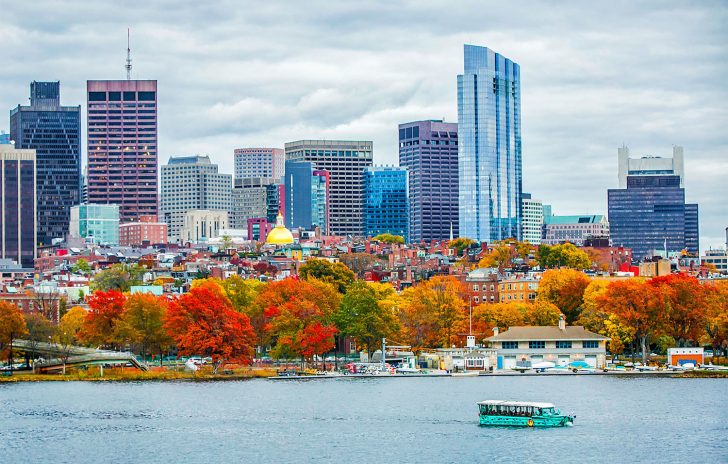
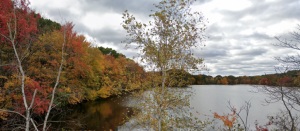
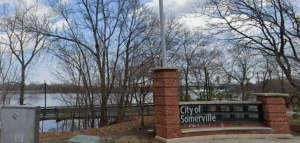
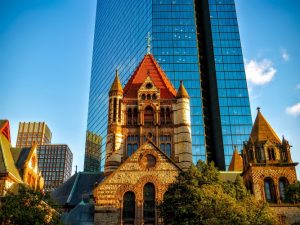
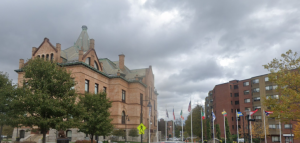
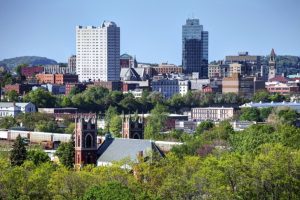
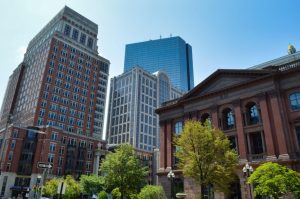





Hilarious.
This is a joke, right?
Boston does not have earthquakes
Boston does not have earthquakes… natural disaster risk is extremely low.
This is about risk. There is a fault line that runs through there. So, that means there is potential risk.
“NATURAL DISASTERS RISK : MEDIUM
Boston gets some “wicked” winter weather in the form of blizzards with an average of four feet of snow each year. The people who live here are very used to these storms, but they can catch tourists off guard. It’s rare a storm will shut the city down, but it will make getting around more challenging for visitors. Hurricanes are another big threat, with the highest risk from August through October. If you remember the book/movie The Perfect Storm, it was a swordboat crew from Gloucester, just north of Boston.”
No mention of a fault line nor earthquakes as justification for a medium risk level. Earthquakes are not a major nor a minor risk in new england. Most of the hazards are seasonal; fall through winter, and are easy to recover from.
There is no earthquakes in Boston
There is no earthquakes in Boston but other than that everything else was pretty accurate.
Having lived in Boston for 12 years (having since moved), I can tell you that it is worth mentioning. Because there is a fault line, you can still be affected by tremors and issues with them knocking out power structures and causing damages in high-rise buildings. Overall, Boston is not a safe place because of the people. I would worry more about them than earthquakes.
I’ve lived on the same fault line in the east coast for my entire life and I have not once felt a tremor. My parents can only count one or two instances of the past several decades where they can remember feeling “slight movement” for a few seconds. There is no risk and it’s not worth mentioning. You probably have a better chance at getting hit a car or dying from a heart attack.
Mostly correct
No earthquakes, and it’s pretty safe for woman travelers. Other than that, pretty accurate. Avoid Mattapan.
Glad James thinks its safe for women. Ask James why if you’re ever in Boston why you should avoid Mattapan. I doubt it has anything to do with parking.
Because it is safe for women. as of 2018, boston had a population for roughly 700k people, with a sexual crime rate of 40.02/100,000 people. 72 other cities and towns in massachusetts had a HIGHER reported crime rate. Boston is generally safe, end of story.
Surprised to see Medium across the board for Boston
Surprised to see Boston with Medium safety risk. I wasn’t expecting things to be this bad there but what do I know. I’m not from the US but I like the US and plan on visiting there and am now trying to find the best cities (and preferably safest) I should visit. If I don’t do this trip now I may never do it so… I guess I’ll just look at the green cities you have on the site and pick some I actually want to see.
Boston is best.
Having lived or visited many US cities it is absolutely safer than most cities. This is especially true in the tourist areas- Faneuil Hall, Seaport, Southie, Back Bay, Longwood area etc.
Why -Boston is a walkable city so lots of foot traffic and a large student population. Also gun safety laws so no open or concealed carry.
Boston is like a European city and a wonderful place to visit or live.
I can’t believe they forgot to put blizzards on the list, the rest of the stuff is not even as common as blizzards.
One of the Safest Cities to Visit
Boston is an extremely safe city, especially for tourists. It’s one of the least problematic cities in the country. You can walk around with expensive bags, cameras, drive a sports car, etc, go on walks through the parks at night, etc. Women (solo) frequently run at night on the esplanade or through the parks, children and teens hang around in the squares and on Newbury St, etc. I’ve lived here for the greater half of a decade and everyone I know of all genders says Boston is one of the most comfortable, quietest, safest, and smartest cities they’ve ever visited in the US. Finally, it doesn’t matter if Boston sits on a fault line if that fault line is renowned for being extremely inactive. Most of the east coast is on a fault line and ask how many times life-long residents can recall an earthquake, they won’t be able to answer that question. The fact that earthquakes are listed as more of a concern than say, I don’t know, BLIZZARDS, tells me you haven’t really lived there. The winter in Boston can be absolutely horrible, most people avoid visiting until the spring.
Boston has its rough spots, but overall, the city feels safe, especially in well-populated areas and tourist spots.
I’ve lived in Boston for years, and while there are occasional incidents, the city is generally safe with a strong police presence.